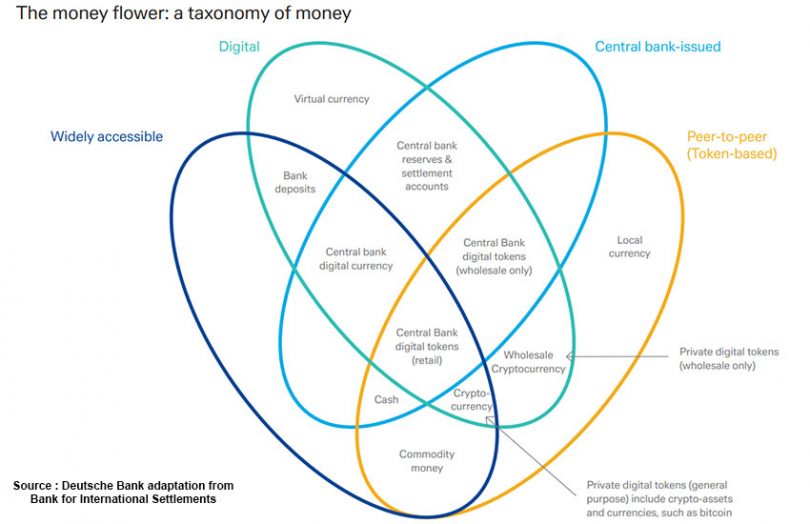A recent report by the Deutsche Bank discussed the adoption hurdles and implications of digital currency initiatives. Based on a survey, the bank studied the role of cryptocurrencies, stablecoins, and central bank digital currencies as a means to replace traditional cash payment methods.
Deutsche Bank believes digital currencies as a means of payment could become mainstream in the next two years. That’s especially so if Facebook leverages its 2.5 billion user base to launch the Libra stablecoin and China’s announcement of a digital yuan.
To make headway, Deutsche Bank believes that digital currencies must collaborate with key stakeholders. These include mobile payments apps, card providers, and global retailers. It predicts that at the current rate of adoption, there could be two hundred million blockchain wallet users by 2030.
Survey results
The survey included 3,600 customers of Deutsche Bank in China, France, Germany, Italy, the UK, and the US, and found that millennials envision a purely digital currency. While cryptocurrency usage has been limited to date, if big corporations and central governments overcome barriers for adoption, it could lead to widespread use.
Across the board, Chinese citizens lead the way in dealing with cryptocurrencies. Meanwhile, there’s limited adoption from older people who are wary as they found it hard to understand, see crypto as having liquidity issues, and believe they will create a volatile financial bubble. On the other hand, respondents between ages 18-24 were at the forefront of dealing with cryptocurrencies.
Nearly 30% of young Chinese respondents said they had dealt with crypto, compared to about 8% of respondents from the UK. In an earlier report, DB found that Germany was the most cash-oriented, but it fared better than the UK in terms of buying and selling cryptocurrencies.
Meanwhile, adoption rates are also affected by cultural perspectives such as the relative anonymity of cash compared to digital currencies. The DB survey found that Americans (22%), British (21%), French (29%), Germans (42%), and Italians (19%) reported concerns about anonymity and traceability. A tenth of the Chinese reported similar concerns.
Across the board, people believe it’s easy to commit fraud using cryptocurrencies, they are hard to understand, and they’re creating a financial bubble. The lack of understanding was slightly less of an issue in China, though still significant.
Asked if cryptocurrencies were easy to purchase, the biggest response from China was to “somewhat agree” at 35%. In the rest of the world, most answered they “neither agree nor disagree” at 37%.
When it comes to investing in cryptocurrencies, 39% of Chinese respondents said they would never do so, as opposed to 56% in other parts of the world.






